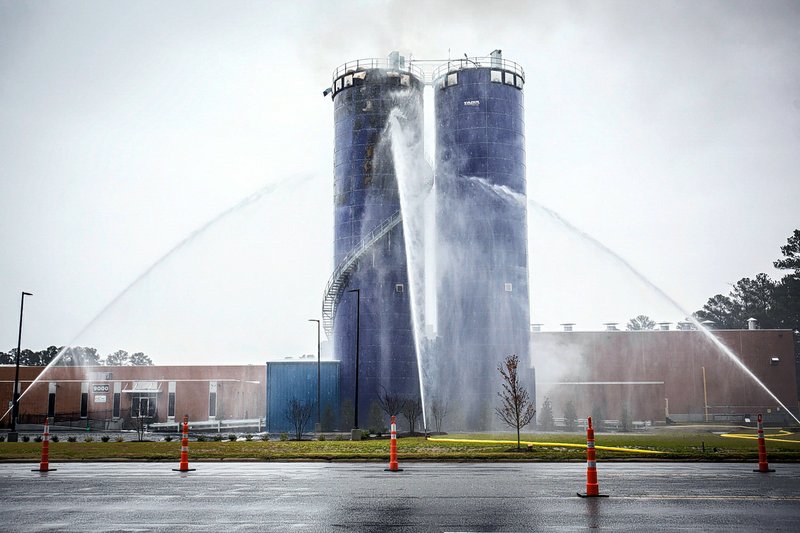RALEIGH, N.C. — Smoke from burnt sweet potatoes wafting around the town of Farmville has nothing to do with holiday baking.
A silo full of dehydrated sweet potatoes has been smoldering in the town an hour east of Raleigh since at least the week of Thanksgiving, said Farmville town manager David Hodgkins.
Firefighters and other town personnel have been at the scene around the clock since Nov. 27, when Hodgkins said the fire became apparent. At least 25 million gallons of water has been sprayed, but it's not clear when it might be extinguished.
He says the fire doesn't pose a health threat to the town of nearly 5,000 people, but some residents complained about the smoke. He expects the company called Natural Blend to pay firefighting costs, which include water purchased from nearby Greenville.
Natural Blend Vegetable Dehydration opened in 2014 and dehydrates sweet potatoes used primarily in pet food, according to a release from the NCEast Alliance. It employed about 30 people at the time. North Carolina produces more sweet potatoes than any other state.
Bobby Ham, a manager listed in state filings, didn't immediately return a message seeking comment.
It's not clear when or how the fire started. Some dehydrated sweet potatoes in the silo got wet over the summer before drying and solidifying, and the company tried drilling holes to dislodge the hardened mass — which may have created a spark, Hodgkins said.
"It's been described as harder than concrete," he said.
At first, firefighters used a machine to continuously spray water from the side, but they've switched to periodic 10,000- gallon sprays into the top of the silo, he said. Farmville sought advice from experts on fighting oil well fires, and state forestry officials used a helicopter to take infrared images.
"What they're trying to do is allow the silo to burn itself out," he said.

